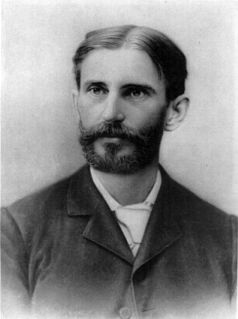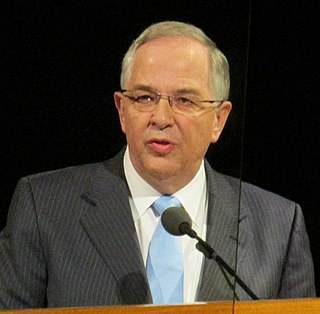A Quote by Thomas Aquinas
One faith, St. Paul writes (Eph. 4:5). Hold most firmly that our faith is identical with that of the ancients. Deny this, and you dissolve the unity of the Church ... We must hold this for certain, namely: that the faith of the people at the present day is one with the faith of the people in past centuries. Were this not true, then we would be in a different church than they were in and, literally, the Church would not be One.
Related Quotes
Before the church responded, a lot of people would ask us, 'Are you afraid of what the church would say?' And Trey and I were like, 'They're going to be cool.' And they were like, 'No, they're not. There are going to be protests.' And we were like, 'Nope, they're going to be cool.' We weren't that surprised by the church's response. We had faith in them.
As a pastor in a Protestant church, my whole ministry centers on the conviction that by grace we are saved through faith. And it's not our faith that delivers us, as if believing something, anything at all were pleasing to God. It's the object of our faith - Christ's life, death, and resurrection - that saves us.
Faith, to be faith, must center around something that is not known. Faith, to be faith, must go beyond that for which there is confirming evidence. Faith, to be faith, must go into the unknown. Faith, to be faith, must walk to the edge of the light, and then a few steps into the darkness. If everything has to be known, if everything has to be explained, if everything has to be certified, then there is no need for faith. Indeed, there is no room for it.
A nominal Christian often discovers in suffering that his faith has been in his church, denomination, or family tradition, but not Christ. As he faces evil and suffering, he may lose his faith. But that’s actually a good thing. I have sympathy for people who lose their faith, but any faith lost in suffering wasn’t a faith worth keeping.
It is certain that the truth of the Christian faith becomes more evident the more the faith itself is known. Therefore, the doctrine should not only be in Latin but also in the common tongue, and as the faith of the Church is contained in the Scriptures, the more these are known in the true sense, the better.
The gift of faith is a priceless spiritual endowment... Our faith is centered in God our Father, and Jesus Christ, our Savior and Redeemer. It is bolstered by our knowledge that the fullness of the gospel has been restored to the earth; that the Book of Mormon is the word of God; and that prophets and apostles today hold the keys of the priesthood. We treasure our faith, work to strengthen our faith, pray for increased faith, and do all within our power to protect and defend our faith.



































